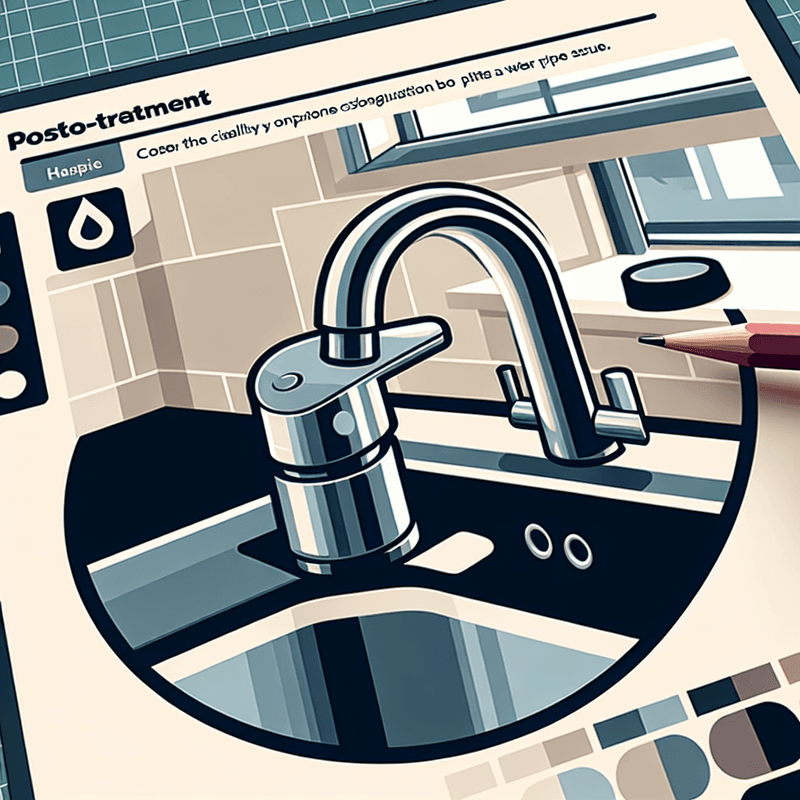When cooler months roll around, the reliance on home heating systems increases significantly. Among the essential components of these systems are radiator valves, which control the flow of hot water or steam into a radiator. However, one common issue that can occur is leaking from these valves. Not only can this lead to inefficiencies in your heating system, but it can also cause water damage if not addressed promptly. In this blog, we'll explore why radiator valves might start leaking, how to identify and fix these leaks, and when it's time to call in a professional.
Understanding Radiator Valve Leaks
Radiator valve leaks can be a sneaky issue. Often, you might not notice a leak until there is noticeable water damage or a decline in the heating efficiency of your home. These leaks can occur for several reasons:
- Wear and Tear: Like most mechanical components, radiator valves can wear out over time. This wear can compromise the valve's seal, leading to leaks.
- Corrosion: Radiators and their valves can corrode, especially in systems that are not regularly maintained. Corrosion can weaken the valve, eventually causing it to leak.
- Improper Installation: If a radiator valve wasn't installed correctly, it might not seal properly. This misalignment can lead to slow leaks that worsen over time.
Spotting a Leaky Radiator Valve
Identifying a leaky radiator valve early can save a lot of trouble and potential damage. Here’s what to look out for:
- Water Marks: Check for staining or puddles around the radiator. Persistent dampness near a valve is a clear sign of a leak.
- Hissing Sounds: Unusual noises from your radiator can be indicative of a leak. A hissing sound might suggest that steam or water is escaping from the valve.
- Reduced Heating Efficiency: If you notice that a radiator isn’t heating up as well as it used to, it might be due to escaping steam or hot water from a leaky valve.
Fixing a Leaky Radiator Valve
Once you’ve identified a leaking radiator valve, the next step is fixing it. Here are detailed steps you can follow:
1. Turn Off the Heating System: Safety first—make sure your heating system is off and the radiator is cool to touch before you start working.
2. Inspect the Valve: Examine the valve for any obvious signs of damage. If the valve cap seems loose, a simple tightening with a wrench might solve the problem.
3. Replace the Valve Cap or Nut: Sometimes, the leak originates from a worn-out cap or nut. Replacing these smaller components can often fix the leak without the need for more extensive repairs.
4. Check the Packing Nut: If the leak persists, try tightening the packing nut just under the handle. If that doesn’t help, you may need to replace the packing washer inside the nut.
5. Seek Professional Help: If you’re not comfortable performing these tasks, or if the leak continues despite your efforts, it’s wise to call a professional plumber. They can offer a more thorough diagnosis and ensure the repair is done safely and effectively.
Prevention Tips
Maintaining your radiator and its valves can prevent future leaks and other issues. Here are some preventative measures:
- Regular Maintenance: Have your heating system checked annually by a professional. They can spot early signs of wear or corrosion and address them before they lead to leaks.
- Check for Corrosion: Periodically inspect your radiator valves for any signs of rust or corrosion, particularly if they're in humid environments or not regularly used.
- Operate Valves Regularly: Valves can seize if not used for extended periods. Regularly adjusting the valves can help keep them in good working order.
Conclusion
Dealing with a leaking radiator valve can feel daunting, but understanding why leaks happen and knowing how to tackle them can empower you to keep your home warm and dry. If you’ve tried fixing a leaky radiator valve and haven’t had success, or if you’re unsure about performing these tasks yourself, calling in a qualified professional is a prudent next step. They can ensure your heating system is efficient, safe, and leak-free, helping you stay cozy through the cold months without unexpected disruptions.





